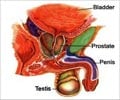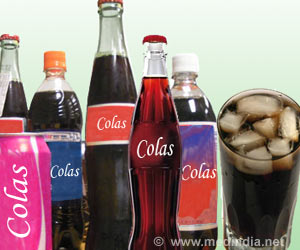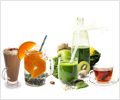- Sugary drinks have been linked to an increased risk of cancer
- Consumption of sugary drinks can increase overall cancer risk, as well as the risk of breast, prostate and colorectal cancers
- Limiting sugar intake may appreciably reduce the risk of cancer
Read More..
Study Background
The consumption of sugary drinks has increased dramatically worldwide over the past several decades, which has led to an increased incidence of obesity. Obesity, in turn, has been linked to an increased risk of cancer. However, very few studies have been carried out on sugary drinks and cancer risk. The present study fills this knowledge gap.Study Design
- The study was designed to detect any association between consumption of sugary drinks, fruit juices (100% concentrate) or artificially sweetened drinks and risk of overall cancer, as well as breast, colorectal and prostate cancers
- 101,257 healthy French adults were included in the study from the NutriNet-Santé cohort
- The study participants included 21 percent males and 79 percent females
- 42 years was the average age of the participants at the time of inclusion
- A minimum of two 24-hour online validated dietary questionnaires was completed by the participants
- Questionnaires measured the daily intake of 3,300 different foods and beverages
- Maximum follow-up period was 9 years (2009-2018)
- Daily intake of sugary drinks, juices (100% concentrate), or artificially sweetened drinks were calculated from the raw data
- First cases of cancer reported by the participants were verified by medical records and linked to national health insurance databases
- The following established cancer risk factors were taken into account:
- Age
- Sex
- Smoking status
- Family history of cancer
- Educational attainment
- Physical activity level
Study Findings
- Average daily intake of sugary drinks was higher in men than in women – 90.3 ml vs. 74.6 ml
- 2,193 first cases of cancer were detected and validated during follow-up, including the following:
- Breast cancer: 693 cases
- Prostate cancer: 291 cases
- Colorectal cancer: 166 cases
- 59 years was the average age of cancer diagnosis
- 100 ml increase in daily intake of sugary drinks led to a 18 percent increase in overall cancer risk and 22 percent increase in breast cancer risk
- Consumption of sugary drinks after segregation into (i) fruit juices and (ii) other sugary drinks, led to increased overall cancer risk in case of both types of drinks
- No association was observed for prostate and colorectal cancers, possibly due to a lesser number of cases for these two cancers
- Artificially sweetened drinks did not show any association with increased cancer risk
Interpretation of the Study Findings
The study findings may be interpreted in the light of the effect of sugar in the drinks on the following parameters, all of which are linked to increased risk of cancer:- Effect on visceral fat, surrounding vital organs like the pancreas and liver
- Effect on blood sugar levels
- Effect on inflammatory markers
Strengths of the Study
- The sample size of the study was sufficiently large (n = 101,257)
- The large sample size enabled adjustments for a wide variety of potentially influential factors
- The study results essentially remained unchanged upon further rigorous evaluation, indicating that the findings could withstand scrutiny
Limitations of the Study
- Since this was an observational study, the cause couldn’t be established
- Misclassification of beverages could have taken place
- Every new cancer case may not have been detected
Concluding Remarks
The authors felt that the results need to be replicated in large scale studies in order to unequivocally say that there is a definite link between sugary drinks and cancer.They conclude: “These data support the relevance of existing nutritional recommendations to limit sugary drink consumption, including 100 percent fruit juice, as well as policy actions, such as taxation and marketing restrictions targeting sugary drinks, which might potentially contribute to the reduction of cancer incidence.”
Funding Source
The study was funded by the Ministry of Health, Public Health France, the National Institute of Health and Medical Research (INSERM), the National Institute of Agronomic Research (INRA), and the National Conservatory of Arts and Crafts, France.Reference:
- Sugary Drink Consumption and Risk of Cancer: Results from NutriNet-Santé Prospective Cohort - (http://doi.org/10.1136/bmj.l2408)
Source-Medindia
















